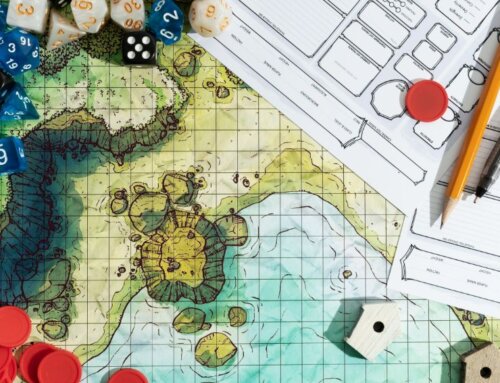Curious about what DLC stands for in games?
While some may view it as mere add-ons, the significance of DLC goes beyond just extra content.
With its ability to reshape game experiences and keep players engaged, DLC has sparked debates on its impact within the gaming community.
Before diving into the depths of DLC’s influence, let’s unravel the layers of its origins and evolution to understand why it has become a staple in modern gaming culture.
Key Takeaways
- DLC stands for Downloadable Content in games.
- DLC enriches gameplay with new levels, characters, and customization options.
- DLC extends game lifespan and enhances player engagement.
- DLC evolves gaming experiences with continuous content updates and personalization.
Origins of DLC in Gaming
In the realm of gaming, the origins of DLC can be traced back to the innovative concept of providing additional game content post-launch. Beginning in the 1990s with disk-based games, DLC has grown significantly over the years, transitioning to primarily digital downloads.
This growth has allowed developers to continuously expand game content, enriching the overall gaming experience for players. Initially, DLC was distributed through separate disks, but with the advancement of technology, it has become more common to download additional content digitally.
From free updates such as cosmetic items to paid expansions offering substantial gameplay additions, DLC now encompasses a wide range of content types, catering to diverse player preferences and extending the longevity of games.
Evolution of DLC Trends
The progression of DLC trends in gaming showcases a dynamic shift in how additional game content is delivered and experienced by players. Initially, DLC monetization relied heavily on paid expansions, but with the rise of digital distribution, free expansions and microtransactions have become more prevalent. This shift has allowed developers to engage players continuously with new content and updates.
Player engagement is a key focus in modern gaming, with live-service models ensuring a steady stream of DLC to maintain interest and revenue. Season passes offer a bundled approach to DLC monetization, granting access to a set of future content for a fixed price. As the industry evolves, the balance between providing valuable additional content and fair monetization practices remains crucial for sustaining player engagement.
Impact of DLC on Gamers
Impacting gamers through extended gameplay and enriched experiences, downloadable content (DLC) in games offers a dynamic range of additional content beyond the base game. DLC enhances immersion by introducing new characters, levels, challenges, and cosmetic items, providing players with increased engagement and variety.
Moreover, player customization is often a key feature of DLC, allowing gamers to personalize their experience and tailor gameplay to their preferences. By purchasing DLC, players not only support ongoing game development but also contribute to sustaining the gaming community.
While DLC brings numerous benefits, concerns such as expensive pricing, potential unfair advantages, and perceptions of incomplete games designed for DLC profits may impact the overall gaming experience.
Benefits of Incorporating DLC
Expanding on the positive outcomes of integrating DLC in games, the benefits of incorporating downloadable content go beyond mere additions to the core gameplay experience. By offering DLC, developers increase engagement by providing players with new challenges, storylines, characters, and gameplay elements.
This continuous stream of fresh content enhances the overall gameplay experience, keeping players immersed in the game world for longer periods. DLC not only extends the lifespan of a game but also generates additional revenue for developers, supporting ongoing game development and updates.
Through DLC, players have the opportunity to delve deeper into the game universe, explore new adventures, and connect with the game on a more profound level, making the gaming experience more dynamic and rewarding.
Challenges Faced With DLC
Navigating the delicate balance between player satisfaction and monetization while implementing DLC presents a significant challenge for game developers. Monetization strategies must be carefully crafted to ensure players feel they’re receiving fair value for their investment.
A common concern revolves around the intentional omission of game content for future DLC releases, potentially leading to player dissatisfaction. Some games offering purchasable advantages through DLC face backlash for creating an uneven playing field. Furthermore, the rapid release of DLCs shortly after a base game launch can result in player resentment.
Developers also grapple with criticism over certain DLCs lacking perceived value, which can directly impact player reception and overall satisfaction with the game experience. Balancing these aspects is crucial for the success of the DLC model in gaming.
Future of DLC in Gaming
The evolution of DLC in gaming is poised to revolutionize player experiences through personalized content tailored to individual preferences. Future DLC is expected to offer more immersive experiences, incorporating technologies like virtual reality and augmented reality to enhance gameplay.
Additionally, there’s a growing trend towards cross-platform compatibility, allowing seamless access to DLC across different devices. Game developers are exploring new revenue models such as subscription-based services and episodic content releases. Collaborative efforts between developers and players are likely to increase, enabling user-generated content and community-driven expansions.
Conclusion
In conclusion, DLC in games has revolutionized the way players experience and engage with their favorite titles. It has provided endless opportunities for developers to expand upon their creations, offering players new content and experiences to enjoy.
While there are challenges and controversies surrounding DLC, its benefits in enhancing gameplay and keeping games fresh can’t be denied.
The future of DLC in gaming looks promising, with continued innovation and creativity driving the evolution of downloadable content.
More info:
https://ps3trophies.co.uk/entertainment/2024/04/15/what-does-hud-stand-for-in-games/
https://ps3trophies.co.uk/entertainment/2024/04/15/what-does-hp-stand-for-in-games/
https://ps3trophies.co.uk/entertainment/2024/04/12/what-does-npc-stand-for-in-games/






Leave A Comment